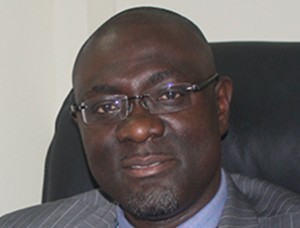The race to end malnutrition requires clean water, good sanitation and good hygiene, WaterAid said in a statement on Tuesday, calling for action as world leaders meet in Rio to open the Olympic Games. WaterAid’s new report, “Caught Short”, looks at stunting from malnutrition around the world and the links to low rates of access to clean water and good sanitation.

Currently 159 million children in the world are stunted as a result of malnutrition, their cognitive and physical growth damaged irreversibly by their inability to obtain and absorb the nutrients they need. Some 50% of malnutrition is linked to infections, worm infestations and diarrhoeal illnesses caused by dirty water, poor sanitation and a lack of hygiene including handwashing with soap.
Nigeria ranks second in the world for having the greatest number of children under five suffering from stunted growth – 10.3 million, or 33% of children under five. About 31% of the population in Nigeria do not have access to clean water and 71% do not have access to decent sanitation.
WaterAid Nigeria’s Country Director, Dr. Michael Ojo, said: “The evidence is clear: children’s health and future potential are compromised when they have no choice but to grow up without clean water, decent toilets and good hygiene practices. Even if children survive their dangerous early years, repeated bouts of diarrhoea early in life are likely to leave them stunted, leaving Nigeria, and Africa as a whole, deprived of a new generation of great leaders, thinkers and athletes. World leaders have promised to end malnutrition and deliver water and sanitation to everyone, everywhere by 2030. They must keep their promises – one cannot be met without the other.”
World leaders and prominent current and former Olympians will meet at the Second High Level Summit on Nutrition on 4 August ahead of the opening ceremonies of the 2016 Olympics in Rio de Janeiro, Brazil to bring attention to the importance of good nutrition. The Nutrition for Growth Summit is the biggest global event between now and 2020 to address the devastating burden of undernutrition and it is set to evaluate progress that has been made in addressing undernutrition since 2013 and build on those commitments with the necessary financial support in order to ensure the ambition of the SDGs to end malnutrition in all its forms can be realised.
WaterAid supporter, Zambian athlete and Olympic medallist Samuel Matete said: “In my work promoting sport among children, the difference between children who have clean water, decent toilets and good hygiene at home, and those who don’t, is very clear. What is most upsetting is that typhoid, cholera and malnutrition are preventable, and we have the tools to do this. Water is life, and sanitation is dignity, and we must deliver these to everyone, even the world’s poorest, as part of the race to end malnutrition.”
